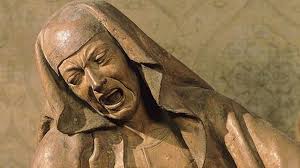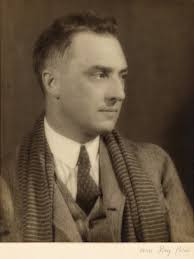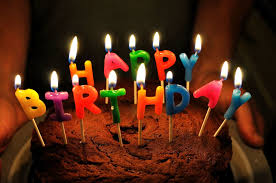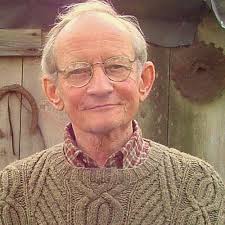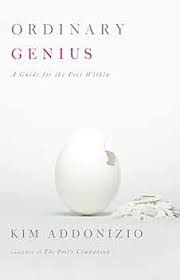
Kim Addonizio’s book Ordinary Genius came out 15 years ago, so the statistics I’m about to cite about poetry readership are dated. The greater point remains valid, however. Let’s dive in ipso fasto and meet around the excerpt, shall we?
“Books of poetry will teach you more than your mentor or professor or the well-known poet you have traveled to a conference to work with. Reading is like food to a writer; without it, the writer part of you will die—or become spindly and stunted. If you’re afraid that reading will make you less original, don’t be. Falling under the spell of—or reacting against—other writers is part of what will lead you to your own work. Reading in the long tradition of poetry shows you what has lasted, and those poems are there to learn from. Reading your contemporaries shows you what everyone else is up to in your own time, so you can map the different directions of the art. There’s never one route to poetry, one style. Reading widely will help you see this.
“Here is a sobering statistic: Poetry, which has been for many years one of the premier poetry journals in America, has about ten thousand subscribers. Every year, it receives ten times that many submissions from writers hoping to land a poem on its pages.
“That’s a hundred thousand people, writing.
“Are they reading? Possibly. Maybe they’re not subscribing to Poetry because they’re spending their money on books by Neruda and Baudelaire and Muriel Rukeyser and Derek Walcott. But in fact, a large number of people who want to write poetry don’t seem to like to read it. Many journals have a circulation of a few hundred copies, and poetry books sell dismally compared to fiction or memoir: the first print run is usually one or two thousand copies.
“Maybe you’re one of those people who writes poems, but rarely reads them. Let me put this as delicately as I can: If you don’t read, your writing is going to suck.”
I love it when people get delicate, don’t you? Kind of like Mom and Dad when you were a kid growing up. Or certainly your siblings. Direct and to the point.
What’s worth gleaning here is this: Although she runs workshops herself, Addonizio is convinced that immersing yourself in the reading of poetry is the best training a wannabe poet can get, period. And yet the statistics seem to show that something else is afoot. Lots of writing, but nowhere near as much reading.
Certainly there’s a marked reluctance to plunking one’s money down for a poetry book or journal. This is surprising, considering the number of poetry practitioners is legion. Why do you think you wait six, nine, twelve months for a response from poetry editors? The transom looks like L.A.’s highway system, that’s why, while the poetry-reading traffic resembles rush hour in Walnut Grove, Minnesota.
What’s wrong with this picture? Addonizio would say, “Where to begin….” She finishes her chapter on reading with this flourish:
“I can’t stress this point enough: You need to soak up as many books as you can. Even the ones you don’t like can teach you something. If you were a painter, you’d spend time looking at works of art from every period in history. A chef I know, whenever he travels, eats enough for three people—he wants to sample all the dishes. Boxers study the great fights of the past, like the Ali-Forman “Thrilla in Manila.” Marketers look at the successes of past products to try to duplicate those successes. Poetry isn’t a product in that way, but you see what I mean. Read. Imitate shamelessly. Steal when you can get away with it. T. S. Eliot said, ‘Good poets imitate. Great poets steal.’
“So read. Let other writers teach and inspire you.
“Unless you really want your writing to suck.”
Time to look in the mirror, poets. What’s your writing/reading ratio? How much time do you spend reading, rereading, copying out, and memorizing poems (all practices Addonizio professes to practice as a successful poet)?
And what about your sense of history? Are you all about contemporary poets only (or even mostly)? Do the words “John Keats” send ripples of fear through your very being?
There’s no time like now to start changing all that. You can start at the library where poetry books come cheap (and don’t get checked out much, if you can believe…).
